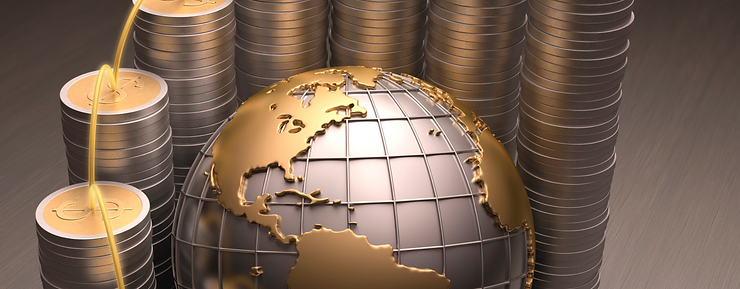The Global Economy
- Lex Rieffel
- Oct 10, 2022
- 3 min read
The annual meetings of the International Monetary Fund and the World Bank have been held for decades in the month of October. Before the Covid-19 pandemic, they were held in rotation: Washington DC for two years and in another country every third year. These meeting went virtual in 2020 and 2021, but resumed in-person on October 10. And these meetings always prompt a lot of commentary about the good or bad health of the global economy. Here are a few of my thoughts on the global economy.

For me, the key word is UNCERTAINTY. The IMF and World Bank were established in 1944, near the end of World War II. The global economy experienced two periods of exceptional turbulence in its first 75 years: in the early 1970s when the USA stopped basing the value of the dollar on the price of gold, and in 2008-09 when the Global Financial Crisis was triggered by a massive bad loan problem in the USA.
We are now beginning to experience a third period of exceptional turbulence. This time it cannot be blamed so directly on the USA. The main causes are the Covid-19 pandemic and the Russian invasion of Ukraine. However, there are underlying problems that aggravate the impact of these two causes: climate change, unsustainable lending to low-income countries (especially by China), political upsets such as the UK exiting the European Union (Brexit), and regional conflicts (Afghanistan, Syria, Myanmar, Venezuela, etc.).
Will this third crisis be worse than the others? I believe there is more uncertainty now about the future of the global economy than there has been since the end of World War II. The inference is that this crisis will be worse.
The biggest uncertainty may be the outcome of the November 7 elections in the USA. In particular, if the Republican Party becomes the majority party in the Senate and the House of Representatives, the odds of Donald Trump winning the Presidential election in 2024 will improve sharply and the rest of the world will react in ways that are likely to depress trade and investment and economic growth.
While I am no fan of GDP as a measure of economic progress, it does have some analytical advantages as well as being easier to measure than well-being. (GDP = Gross Domestic Product, the core concept for most economic policies)
Uncertainty operates on GDP through the relationships of savings and investment to output and incomes by both households and businesses. In a period of uncertainty, investors reduce their investments because it’s hard to see attractive opportunities with low risks. As investment (and consumption) fall, savings rise. The result is a recession (no GDP growth): less spending and hence more unemployment.
To make it worse, the world is experiencing a new form of uncertainty: high inflation combined with high indebtedness. Both are legacies of the Global Financial Crisis. To mitigate the impact of this crisis (to stop GDP from falling too far too fast), central banks engaged in unprecedented “quantitative easing”: injecting so much money into their national economies that interest rates remained close to zero for about ten years.
At the same time, governments chalked up big deficits by spending more to create jobs without raising taxes, leading to a level of government debt in the USA, for one example, that had not been approached since World War II. The Covid-19 pandemic extended the policy of quantitative easing and led to even bigger budget deficits and more indebtedness.
The last time I did any serious economic forecasting was in the 1970s as an economist in the US Treasury Department. So, your crystal ball, with less experience, is likely to be as accurate as mine. I won’t try to predict what the global economy will look like a year from now. I do expect, however, that known political events (Russia’s attack on Ukraine, OPEC oil prices, the election in the USA, China’s policies) and some unknown ones will determine whether the global economy at the end of 2023 is stronger or weaker than at the end of 2022.
Comments